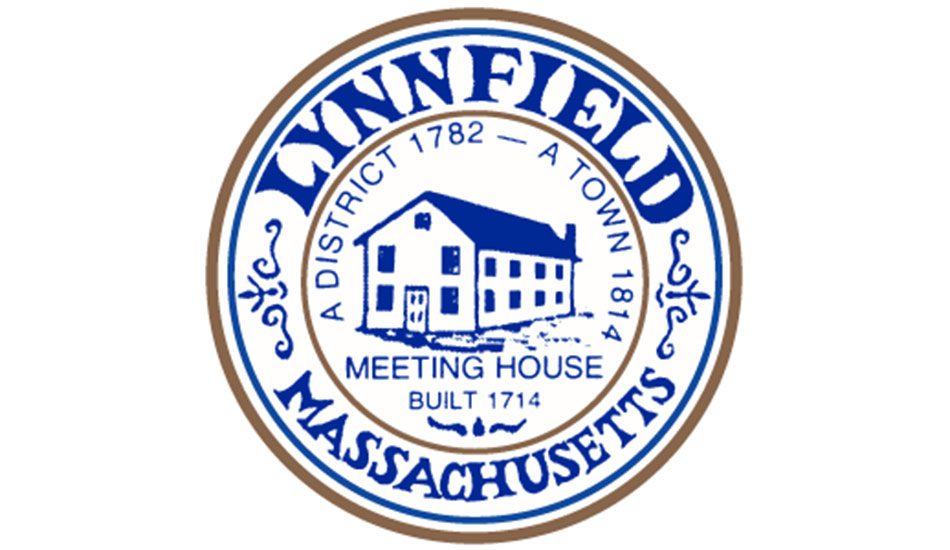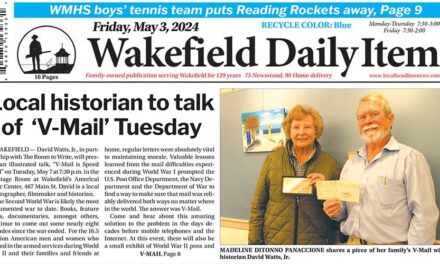By DAN TOMASELLO
LYNNFIELD — The Finance Committee is ringing alarm bells about the town’s financial situation beyond fiscal year 2025, and is calling for a “collaborative” approach to address the budget challenges that loom.
In a supplemental letter that will be given to attendees at Spring Town Meeting on Monday, April 29, the Finance Committee wrote that it voted 7-1 to recommend the proposed FY25 operating budget. The recommended operating budget that will be voted on during Spring Town Meeting represents a 4 percent increase over FY24’s $65,737,091.18 spending plan.
“The committee feels this year’s operating budget is successful in meeting the current needs of the town,” the Finance Committee stated in the supplemental letter.
As currently proposed, the Finance Committee recalled that the recommended FY25 operating budget includes two new full-time firefighters out of the four Fire Chief/Emergency Management Director Glenn Davis requested. Town Administrator Rob Dolan recently said that the other two firefighters will be hired in FY26.
“The two new firefighters will bolster overnight coverage and continue to ensure the safety of our residents,” the FinCom wrote.
The proposed spending plan also appropriates a 4.3 percent increase for education spending, including a 3.9 percent budget increase for Lynnfield Public Schools, totaling $30,806,245. The education portion of the budget also includes $3,728,484 for school employee health insurance and $656,583 for the town’s Essex Tech assessment.
“The 4.3 percent increase in the School Department budget represents an increase of $1,452,715 and allows for the district to staff three additional elementary school classrooms and partner with NECC (New England Center for Children) to operate two Differentiated Learning Program classrooms,” the Finance Committee stated.
Additionally, the FinCom unanimously voted to recommend a $1,683,570 capital budget for the next fiscal year.
“The capital budget continues to provide a healthy investment in the capital needs of the town departments to serve the community,” the Finance Committee stated in the letter.
While the majority of the Finance Committee voted in favor of the proposed FY25 operating budget, the FinCom has some concerns about the recommended spending plan. The Finance Committee recalled that $260,000 in Free Cash leftover from FY24 will be used to help the School Department finance the $375,000 cost for hiring NECC to take over the two DLP classrooms at Huckleberry Hill School and Lynnfield Middle School.
“The town typically uses Free Cash to fund its capital expenditures, and using it to fund operating expenses creates a structural deficit heading into FY26,” the Finance Committee stated. “The Finance Committee does not believe this to be prudent financial practice and should be avoided going forward.”
While the FinCom criticized how the pact with NECC was partially funded, the committee supports the one-year contract.
“The Finance Committee is in support of this measure as a solution to an acute issue in the middle and elementary schools,” said the Finance Committee wrote. “The partnership with NECC is not intended to stem the rise in special education costs beyond the two classrooms, and the Finance Committee would like to see a strategy developed that could effectively create the necessary programming and resource allocation going forward to help limit the growth in costs of out-of-district placements and in/out-of-district transportation while still meeting the needs of the entire student population.”
While the FinCom stated that, “the town needs to be increasingly efficient on the expense side of the budget, the Finance Committee believes there are also opportunities on the revenue side of the ledger to explore.”
“For instance, the town owns and operates two golf courses, which combine to generate healthy and consistent Retained Earnings on an annual basis,” the FinCom wrote. “As currently constructed through the Golf Enterprise Fund, the Retained Earnings from these operations can only be used to fund operations and capital expenditures in support of the golf courses. The Finance Committee would like the town to explore structural and/or legal changes to the Golf Enterprise Fund to allow the profits from the two golf courses to be regularly and repetitively used for other capital or operating needs throughout the town.”
The Finance Committee recalled that the panel aired concerns about the town’s financial situation in a supplemental letter that was given to attendees at the 2019 Spring Town Meeting. The committee stated that “a lot has changed” in the past five years.
“The entire globe experienced the worst health crisis in the past 80 years, forcing the economies across the world to shut down,” the Finance Committee wrote. “The financial response to this was unprecedented monetary and fiscal stimulus. This took many forms, including ARPA (American Rescue Plan Act) funds for the town, PPP (Paycheck Protection Program) checks for small businesses and enhanced unemployment for individuals. These policies very well may have helped to ‘save’ the U.S. economy, but in return the pent-up demand and all these dollars chasing too few goods created an inflationary environment not seen in the U.S. since the 1970s. By 2022, the health care crisis had stabilized, and the Federal Reserve began increasing interest rates at a historically fast pace to first stop and ultimately bring down inflation. Inflation has come down, peaking at 9 percent and now in the low 3s. However, some aspects of the economy remain a challenge – inflation becomes embedded in the wage base and historically low unemployment make hiring, retaining and compensating private and public sector workers a challenge. From the Finance Committee’s perspective, the costs of providing services such as public safety, education and public works are rising without an end in sight.”
The Finance Committee stated that, “Higher interest rates make borrowing costs more expensive for individuals, companies and municipalities alike.”
“These costs, coupled with a lack of new growth, make all town capital spending decisions critically important,” the FinCom stated. “The Finance Committee has received a commitment from the town administration to create a five-year capital plan, which is both a Charter mandate and a municipal management best practice. Our expectation is this plan will be updated on an annual basis. This plan is a necessity to guide capital spending into the future. There is also a commitment for the Select Board to create a new Capital Planning Committee to take the capital plan forward to help prioritize the capital needs of the town.”
In the wake of a challenging budget during FY20, the Finance Committee recommended three options for the town to consider five years ago. Under the first path, the FinCom stated, “The town could choose to slow its expense growth to ensure a pace that is a commensurate with projected revenue trends.”
“This could mean, for example, that we stop net new headcount growth and would expect the town administrator and selectmen to limit salary increases in future labor negotiations with town unions,” the Finance Committee wrote five years ago.
The second path the Finance Committee recommended in 2019 was that the town could become “more receptive to revenue-positive development opportunities” that include “voting in favor of developments the town has historically rejected.”
Under the third path, the Finance Committee stated five years ago that townspeople could support a Proposition 2 1/2 override in order to “finance the expense growth ourselves.”
“In full disclosure, the FinCom does not know with certainty when an override would occur or how much it would entail, nor can we guarantee that a focus on the first two paths would completely eliminate the potential for an override,” the FinCom stated five years ago. “Still, without shifting our views in the first two paths, we believe it is inevitable in time.”
The Finance Committee wrote in the new letter that the three financial paths “remain the philosophical options for the town.”
“The Lynnfield Finance Committee is not endorsing, recommending or favoring any one of these difficult choices,” the FinCom stated. “What we are endorsing is a collaborative, transparent and open-minded approach to future budgets that will allow the town of Lynnfield to prosper for generations to come.”
If residents have any questions about the Finance Committee’s letter, they should send an email to fincom@town.lynnfield.ma.us.





